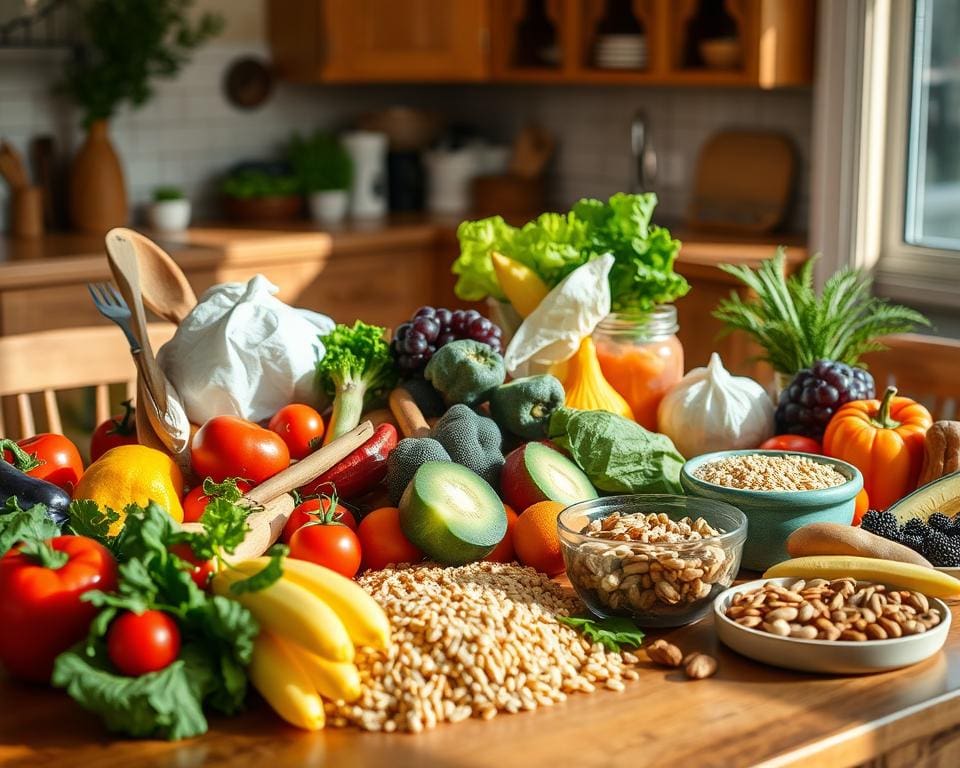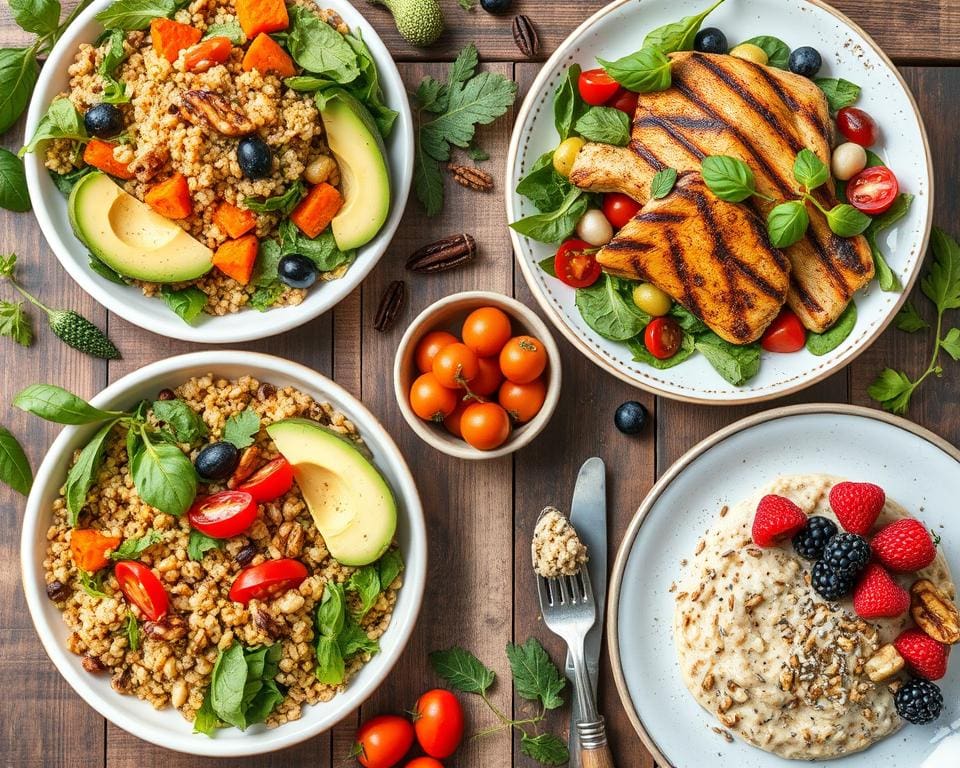In today’s fast-paced world, understanding the concept of balanced meals is key to achieving nutrient-packed days. By incorporating various food groups into each meal, individuals can ensure they receive the essential vitamins and minerals needed for optimal health. Balanced meals are not just about fitting in your food groups; they play a fundamental role in maintaining energy levels and promoting overall well-being.
With an emphasis on healthy eating, it’s important to explore nutritious meal ideas that can transform your dining experiences. This section will serve as a gateway to discovering how thoughtful meal planning can significantly impact your daily nutrition and vitality.
Understanding the Importance of Balanced Meals
Balanced meals play a vital role in promoting overall health and well-being. Understanding their significance enhances our ability to make choices that fuel our bodies and minds. Nutrition serves as the cornerstone for sustaining daily energy, influencing everything from physical stamina to mental sharpness.
The Role of Nutrition in Daily Energy
Nutrition impacts daily energy levels in profound ways. Including a variety of foods in our diet ensures an adequate supply of essential nutrients required for optimal metabolic function. A well-structured plate with proteins, carbohydrates, and healthy fats not only provides the necessary fuel but also stabilizes blood sugar levels, preventing energy crashes.
Benefits of Consuming Wholesome Ingredients
Opting for wholesome ingredients over processed foods brings numerous benefits. Wholesome ingredients such as fruits, vegetables, whole grains, and lean proteins contribute to better digestion and more balanced mood throughout the day. They significantly reduce the risk factors associated with chronic diseases while ensuring nutrient density in the food we eat.

Balanced Meals for Nutrient-Packed Days
A well-balanced diet is integral to achieving optimal health and maintaining energy throughout the day. Understanding the essential components is key to creating meals that nourish both body and mind. By focusing on nutrient-dense meals and effective meal planning, anyone can enhance their healthy eating habits.
Key Components of a Well-Balanced Diet
A well-balanced diet encompasses a variety of food groups, ensuring a rich supply of vitamins and minerals. Key components include:
- Proteins: Vital for muscle repair and growth. Sources include lean meats, eggs, and legumes.
- Carbohydrates: Provide energy. Opt for whole grains and fruits for sustained energy release.
- Fats: Necessary for hormone production and vitamin absorption. Healthy options include avocados, nuts, and olive oil.
- Vitamins and Minerals: Essential for numerous bodily functions. A variety of colorful fruits and vegetables helps ensure adequate intake.
Nutrient-Dense Meals That Fuel Your Body
Crafting nutrient-dense meals involves selecting foods that offer the most nutrition per calorie. For example, a breakfast that combines oatmeal with fresh berries and a sprinkle of nuts can provide sustained energy and essential nutrients. Lunchtime salads filled with a mix of leafy greens, grilled chicken, and an array of colorful vegetables can boost your nutrient intake. Dinner can feature a hearty quinoa bowl topped with roasted veggies and a protein of choice, ensuring a satisfying end to your day.
Meal Planning Tips for Daily Success
Effective meal planning is crucial for maintaining a well-balanced diet. Here are some practical tips to streamline the process:
- Set aside time each week to plan meals and grocery lists.
- Incorporate a variety of food groups to keep meals interesting.
- Prepare meals in batches to save time and prevent unhealthy choices.
- Experiment with new recipes to keep healthy eating exciting.
By adopting these strategies, achieving a well-balanced diet filled with nutrient-dense meals becomes both manageable and enjoyable.
Delicious Nutrition-Rich Recipes to Try
Embracing a balanced diet doesn’t have to be dull or complicated. Here are nutrition-rich recipes designed for every taste, from vegetarian to gluten-free, ensuring there’s something delicious for everyone. One must-try dish is the Mediterranean Quinoa Salad, which combines fresh vegetables, chickpeas, and a zesty lemon vinaigrette. This meal is not only vibrant and flavorful but also packed with protein and fiber, making it a perfect example of dietitian-approved meals.
If you’re looking for a warm and comforting option, consider preparing a Sweet Potato and Black Bean Chili. This hearty recipe is loaded with vitamins, minerals, and plant-based protein, catering to those who prefer nutritious meal ideas that satisfy while being wholesome. Topped with avocado and cilantro, this dish delivers both flavor and nutrition in every bite.
For a quick breakfast or snack, try the Overnight Chia Pudding. Combining chia seeds with almond milk and your favorite fruit creates a delightful mix of textures and nutrients, giving you a great start to the day. This recipe highlights how simple ingredients can lead to nutrition-rich recipes that contribute significantly to your daily dietary needs. With these ideas in your culinary repertoire, you can inspire healthy eating habits that are both delightful and fulfilling.









